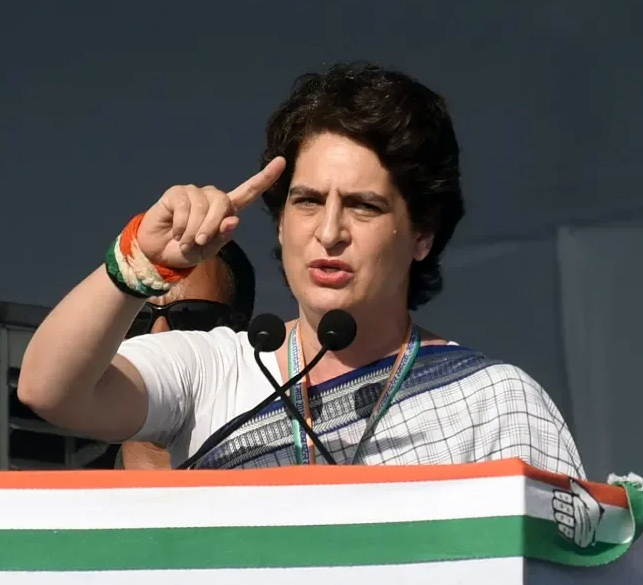The Winter Session of Parliament saw disruptions as the opposition demanded discussions on multiple issues, including Adani, Manipur, and chambal violence
The Winter Session of Parliament began on a dramatic note today, as newly-elected Congress leader Priyanka Gandhi Vadra took her oath as a Member of Parliament in the Lok Sabha. Her swearing-in ceremony was overshadowed by the uproar in both Houses of Parliament, which were adjourned until 12 p.m. due to opposition demands for discussions on various pressing issues.
In the Lok Sabha, as Priyanka Gandhi took her oath, the session was quickly plunged into chaos. The Opposition, led by Congress, vociferously raised the issue of the Adani group’s alleged corruption, demanding a parliamentary probe into the allegations. Their calls were joined by demands for a discussion on the ongoing violence in Manipur and the recent incidents of violence in Chambal, Uttar Pradesh. The protests led to the Lower House being adjourned just minutes after the session began, with no substantive business being conducted.
A similar scene unfolded in the Rajya Sabha. Opposition members, united in their call for urgent discussions, echoed the same demands. Their insistence on a debate over the Adani controversy, the Manipur conflict, and violence in Chambal resulted in the adjournment of the Upper House as well, until noon.
Embed from Getty ImagesThe protests by the Opposition reflect the heightened political tensions surrounding these issues. The Adani scandal, which involves accusations of bribery and fraud against the industrialist, continues to be a flashpoint in Indian politics. The Opposition is calling for a full investigation into the matter, which they claim is a matter of national concern. Similarly, the violence in Manipur, which has seen ongoing clashes and unrest, remains a critical issue for lawmakers.
In a quieter development, the amendment to the Waqf Act, which was expected to be discussed during the session, has hit a snag. The joint committee set up to examine the Waqf (Amendment) Bill, 2024, is unlikely to complete its work in time. Jagdambika Pal, the chairman of the committee, announced that he would seek an extension for the panel to present its report, delaying the bill’s potential introduction in Parliament.
The Winter Session, which is crucial for the passage of several important bills, has so far been marked by tension and disruption. The government has listed 15 bills for discussion, including a significant amendment to the Waqf law, as well as five new bills. However, with the ongoing protests, the likelihood of any significant progress on legislation appears uncertain.
The Trinamool Congress, a key party in the opposition bloc, has expressed its intention to focus on what it calls “people’s issues.” Kakoli Ghosh Dastidar, the party’s deputy leader in the Lok Sabha, emphasized that her party would not allow the proceedings to be bogged down by “one issue” alone. While the Congress continues to demand action on the Adani scandal, the Trinamool Congress plans to highlight issues such as the deprivation of central funds to West Bengal and the deteriorating situation in Manipur. Their strategy suggests a more targeted approach, aiming to address local and regional concerns during the session.
As the session unfolds, the political atmosphere in Parliament remains charged, with both the government and opposition keenly eyeing the developments. Whether the government can navigate the deadlock and move forward with its legislative agenda remains to be seen. The next few days of the Winter Session will likely be pivotal in shaping the political landscape, as the Opposition continues to push for accountability on key issues, and the government strives to secure the passage of its bills.
